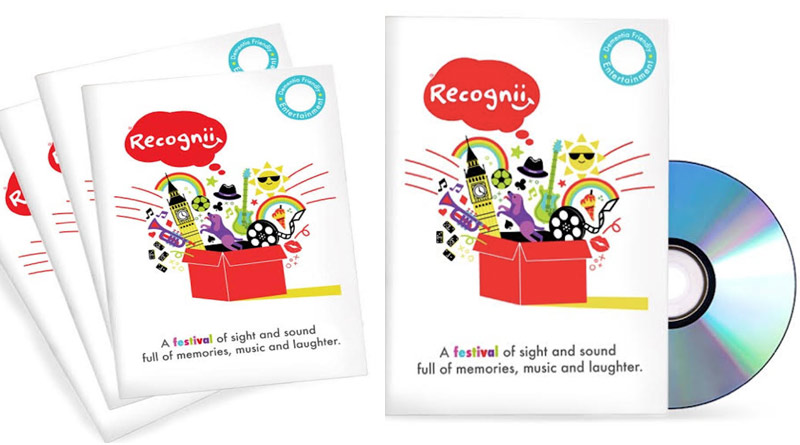Recognii Offers New Way to Entertain Residents With Later Stage Dementia
The first film created especially for people living with later-stage dementia is offering care homes an inexpensive and accessible new way to entertain residents.
‘Treasure Box’ by Recognii is an hour-long series of uplifting, plot-free and visually engaging short clips, all set to some of the nation’s best-known music, songs and theme tunes.
Each scene has been designed to capture short attention spans and specially adapted to overcome the common visual and cognitive processing problems associated with the condition.
The company’s founder, Sarah Harrison, says Treasure Box was designed to be an essential resource for dementia care providers providing safe, engaging entertainment for communal relaxation areas or a flexible tool for more focused one-to-one or group activities.
She explained: “Treasure Box can be enjoyed as a complete film, but there are also deliberately slow transitions between each of the clips to allow for sensory readjustment and to give staff time to pause the film and reminisce or chat with residents about what they have just seen.”
Recognii contains the sort of content the company’s research showed had most universal appeal among sufferers, from happy children, appealing animals and gentle humour to musical interaction, the natural world, iconic people and places, puppetry and lots more.
Treasure Box is available on USB stick for use in Smart TVs and laptops, and also in traditional DVD format. They retail at £23.99 for the USB stick or £19.99 for the DVD.
Dr Lucy Pollock, gerontologist and author of bestselling ‘The Book About Getting Older’, said: “This is just lovely. Treasure Box is the sort of thing that can be watched over and over by people living with significant dementia. In the same way that small children like replaying their favourites, these images with music become very soothing with familiarity. Even those with significant dementia can find repeated routines comforting.”
To accommodate the visual processing problems experienced by many people with advanced dementia the team took a deliberate approach to the way the content is filmed.
Sarah explained: “To make everything as visible as possible we filmed against plain backgrounds, with high colour and tonal contrast and predominant use of red and those primary colours research shows are most easily recognised. We also took care not to feature unnecessary detail, busy patterns, shadows or reflective light sources.”
Each plot-free clip contrasts strongly from the last to draw wandering attention back to the screen, and in keeping with the visual approach, music and vocal arrangements are simple and dialogue is kept to a minimum.
More information and demos are available through the Recognii website at www.recognii.co.uk.





